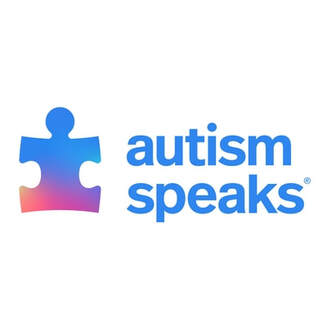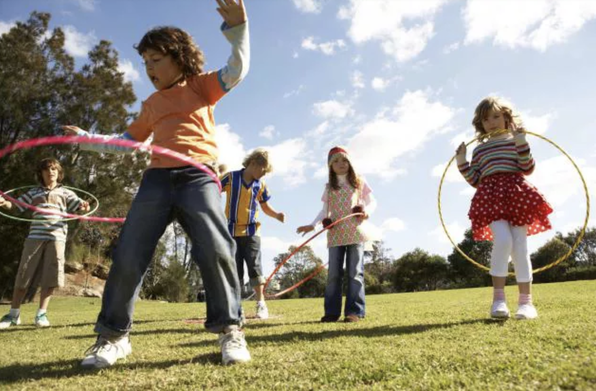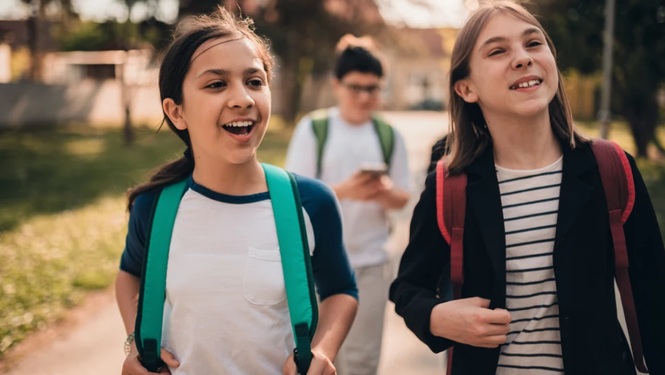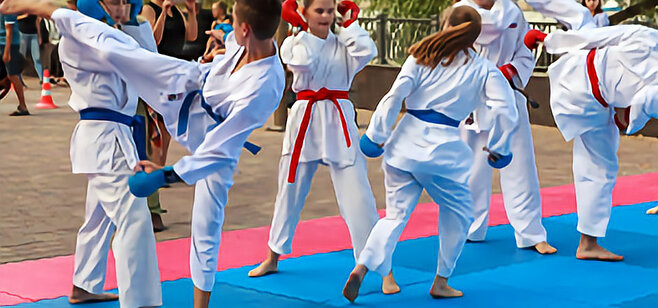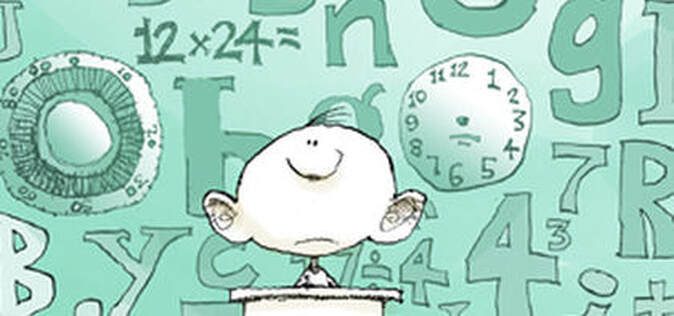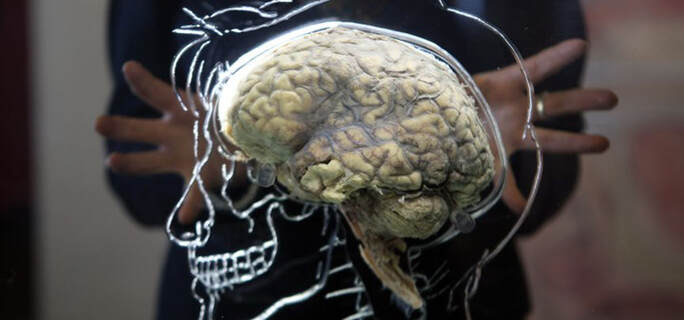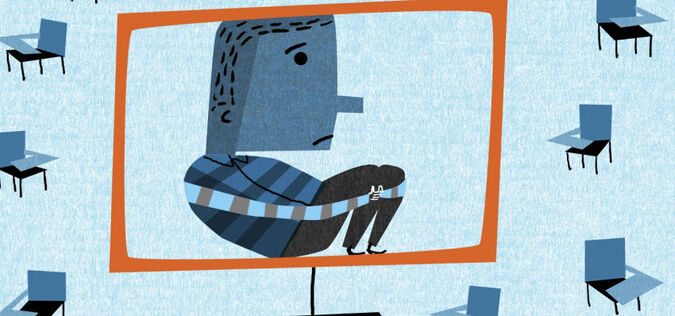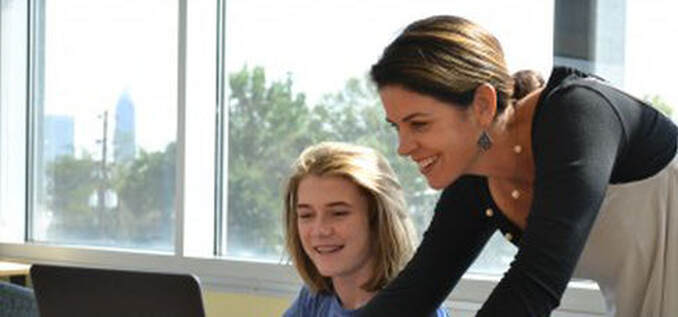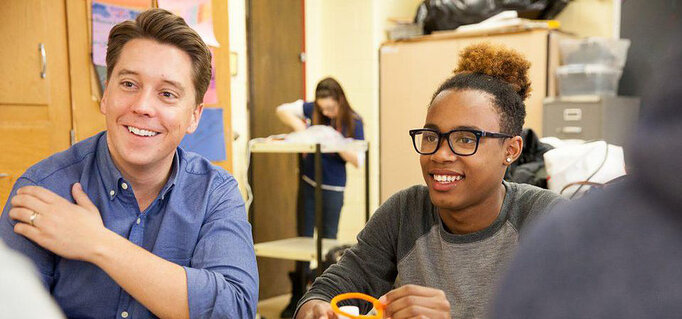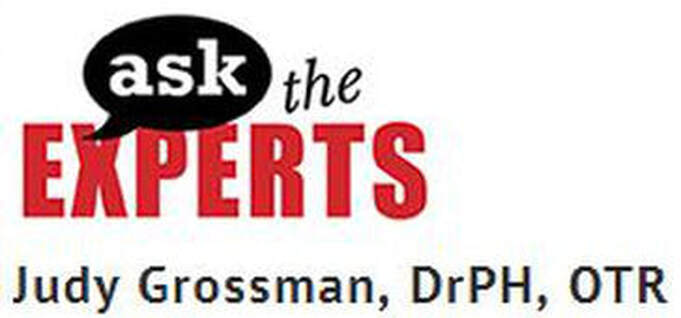The ADHD Conflict Resolution Guide: Tools and Scripts for Settling Disagreements
ADDitude Magazine
The Conflict – within families and in other relationships – is normal. But disagreement can grow heated when ADHD sparks anger, impulsivity, and intense emotions. The best way to handle conflict is to prepare for it by creating a conflict resolution plan in advance. Here, find scripts and ideas for handling disagreements with tools like reflecting listening, the STAR method, and more.
by Sharon Saline, Psy.D.
The Conflict – within families and in other relationships – is normal. But disagreement can grow heated when ADHD sparks anger, impulsivity, and intense emotions. The best way to handle conflict is to prepare for it by creating a conflict resolution plan in advance. Here, find scripts and ideas for handling disagreements with tools like reflecting listening, the STAR method, and more.
by Sharon Saline, Psy.D.
People with dyslexia have ‘enhanced abilities’, according to a new study
World Economic Forum
The neurological condition is linked to “enhanced abilities” in areas like discovery, invention and creativity.
These skills are vital in helping humans adapt to changing environments, researchers say.
The neurological condition is linked to “enhanced abilities” in areas like discovery, invention and creativity.
These skills are vital in helping humans adapt to changing environments, researchers say.
More Than Just Genes: How Environment, Lifestyle, and Stress Impact ADHD
ADDitude Magazine
ADHD is a genetic disorder, but DNA is not working alone. Stress, foods, and environmental toxins change the brain as well. Here, learn how to reverse their negative effects.
By Joel Nigg, Ph.D
ADHD is a genetic disorder, but DNA is not working alone. Stress, foods, and environmental toxins change the brain as well. Here, learn how to reverse their negative effects.
By Joel Nigg, Ph.D
Resources to (Actually) Help You Parent Your
Kids Through Every Age and Stage
By Greg Moro
Nothing is more challenging than being a parent. It often seems that as soon as you’ve figured out how to lead your child effectively, they reach a new stage in their development and begin to respond completely differently to your strategies!
But parenting is also one of the most rewarding ventures possible. And if you consult reliable resources on your journey, you can prepare yourself for some of the obstacles that come your way. Below, Brendan Sailing has provided some of the best parenting resources you will find!
Take Care of Yourself
If you’re going to be the parent you dream of being, then you must practice self-care and set goals for yourself. By fostering your own health and well-being, you can better be there for your kids.
Prioritize Their Learning
Few things are more important to your children’s success than their education through each age and stage of their lives.
Promote Healthy Habits
Along with modeling self-care in your own life, here are a few other ways to encourage healthy habits in your children:
Parenting can leave you feeling a variety of emotions: confident, happy, frustrated, and defeated on a daily basis. Just know that you’re not alone! There is no magic solution for becoming the perfect parent, but you can arm yourself with good advice for upcoming (and current) challenges. The resources above are a great place to start. Just remember to cherish each moment with your children as you grow with them!
Sailing can be a great way for kids to develop independence, learn cooperation, and practice their social skills. These skills are even more important to emphasize if your child has a learning disability. Brendan Sailing gives kids an opportunity to face challenges and find solutions, which can help them learn to manage frustration they may feel in school. Visit our website to learn more about our program and how to enroll.
Nothing is more challenging than being a parent. It often seems that as soon as you’ve figured out how to lead your child effectively, they reach a new stage in their development and begin to respond completely differently to your strategies!
But parenting is also one of the most rewarding ventures possible. And if you consult reliable resources on your journey, you can prepare yourself for some of the obstacles that come your way. Below, Brendan Sailing has provided some of the best parenting resources you will find!
Take Care of Yourself
If you’re going to be the parent you dream of being, then you must practice self-care and set goals for yourself. By fostering your own health and well-being, you can better be there for your kids.
- Take the time to eat healthier. There are some tips and tricks that help make the process easier and faster, which is important when you have a busy schedule.
- Remove the “I’m too busy” excuse and start exercising. You can fit it in if you get your kids involved or even take the time to exercise at work.
- Although it seems impossible on some days, find ways to get into a good sleep pattern.
Prioritize Their Learning
Few things are more important to your children’s success than their education through each age and stage of their lives.
- Help your preschooler to meet their developmental goals by creating structure and communicating with both your child and your child’s teacher.
- Stay connected to teachers and the school as your child moves into elementary school. Make sure you understand the expectations, and that you are getting your child to school ready to learn.
- Enforce all of those early habits as your teen moves up in school. Help them to make a calendar and stay current on assignments, and consider a reward system to increase motivation.
- Don’t let a learning disability keep your child from meeting their potential. Educate yourself on best practices for their specific challenge, and become their biggest advocate in school and at home.
- Considering homeschooling but not sure how? Get expert advice on how to help your child at each grade level.
- Don’t let learning end when school lets out. Find kid-appropriate kitchen tools so that you can teach them cooking skills, including basic math. Or get a classic red wagon and take the whole family out for a nature-observing adventure in the neighborhood.
Promote Healthy Habits
Along with modeling self-care in your own life, here are a few other ways to encourage healthy habits in your children:
- Help your child develop a healthy relationship with food by promoting healthy eating and avoiding using food as a reward.
- Don’t get overwhelmed if you have a picky eater. Be patient, present them with new foods to try, and avoid bribing your child to eat new foods.
- Help your child to get active by finding a developmentally appropriate fun activity you can do together. And be a role model. Get out there and play with your child!
- Encourage a healthy sleep schedule for your child by spending some quality time together, turning off electronics, and sticking with a routine. Being sleep deprived is no fun for anyone.
- Work with your child to find a hobby they enjoy. Brendan Sailing works specifically with children with learning disabilities to build confidence and social skills.
- Carve out time to spend with your kids. Having them help you with household chores can be a great way to teach them life skills and build your relationship.
Parenting can leave you feeling a variety of emotions: confident, happy, frustrated, and defeated on a daily basis. Just know that you’re not alone! There is no magic solution for becoming the perfect parent, but you can arm yourself with good advice for upcoming (and current) challenges. The resources above are a great place to start. Just remember to cherish each moment with your children as you grow with them!
Sailing can be a great way for kids to develop independence, learn cooperation, and practice their social skills. These skills are even more important to emphasize if your child has a learning disability. Brendan Sailing gives kids an opportunity to face challenges and find solutions, which can help them learn to manage frustration they may feel in school. Visit our website to learn more about our program and how to enroll.
The Autism-Friendly Youth Organization Guide
The purpose of this guide is to better prepare youth-serving organizations to serve youth and families with autism.
In this document, autism refers to Autism Spectrum Disorder (ASD), which includes individuals diagnosed with
Autistic Disorder, Pervasive Developmental Disorders, Not Otherwise Specified, and Asperger’s Disorder.
Autism Speaks believes that recreation and leisure activities are particularly important for people with autism. We
know that participating in such activities often produces opportunities to practice social skills, physical aptitude and
increase motivation while also increasing self-confidence and fuller integration into the community.
The information that follows will be useful for helping integrate youth with autism into your existing programs,
communicating with parents, and training your staff. With help from respected experts in the field of autism and
special education, experienced parents and caregivers, we have included an introduction to autism and specific
strategies that will allow you to lead the way for youth with autism to have the same formative experiences through
community organizations that are available to their typical peers.
We have included a wealth of information, from a wide variety of sources. New tools and resources will be
added as they become available. We encourage you to become familiar with the kit and share it with your youth
organization colleagues.
In this document, autism refers to Autism Spectrum Disorder (ASD), which includes individuals diagnosed with
Autistic Disorder, Pervasive Developmental Disorders, Not Otherwise Specified, and Asperger’s Disorder.
Autism Speaks believes that recreation and leisure activities are particularly important for people with autism. We
know that participating in such activities often produces opportunities to practice social skills, physical aptitude and
increase motivation while also increasing self-confidence and fuller integration into the community.
The information that follows will be useful for helping integrate youth with autism into your existing programs,
communicating with parents, and training your staff. With help from respected experts in the field of autism and
special education, experienced parents and caregivers, we have included an introduction to autism and specific
strategies that will allow you to lead the way for youth with autism to have the same formative experiences through
community organizations that are available to their typical peers.
We have included a wealth of information, from a wide variety of sources. New tools and resources will be
added as they become available. We encourage you to become familiar with the kit and share it with your youth
organization colleagues.
The Best Sports for Kids with Autism
“There is a whole world of non-team sports out there—and autistic children can and do take part in many of them. Skiing, surfing, sailing, and many more can be a great match for your child, especially if your family enjoys them.”
The Dyslexia and ADHD Connection
"ADHD is usually apparent from the first day of school, whereas dyslexia is often not recognized until fourth or fifth grade when the shift is made from learning to read to reading to learn. How to tell the difference between ADD and its co-morbid learning disabilities, and how to get help.”
Experts share advice for helping kids with ADHD through the virtual learning process
by Ashley Williams
“As families prepare for learning online during the upcoming school year, some experts say that children with attention-deficit/hyperactivity disorder (ADHD) may have a harder time.
'I know parents of kids with ADHD, and they’re very worried about the long-term effects of virtual learning on their students,' said assistant principal Laci Culbreth of Royce Learning Center, which teaches children with learning disabilities.”
'I know parents of kids with ADHD, and they’re very worried about the long-term effects of virtual learning on their students,' said assistant principal Laci Culbreth of Royce Learning Center, which teaches children with learning disabilities.”
The Importance of Positive Self-Esteem for Kids
by Bob Cunningham, Ed.M.,
published on Understood.org
published on Understood.org
"Kids with positive self-esteem feel confident and capable. They value themselves and their abilities. They’re proud of the things they can do and want to try their best.
When kids are confident and secure about who they are, they’re more likely to have a growth mindset. That means they can motivate themselves to take on new challenges and cope with and learn from mistakes. They’re also more likely to stand up for themselves and ask for help when they need it."
When kids are confident and secure about who they are, they’re more likely to have a growth mindset. That means they can motivate themselves to take on new challenges and cope with and learn from mistakes. They’re also more likely to stand up for themselves and ask for help when they need it."
Exercise: Good Medicine for ADHD
By Eve Kessler, Esq.
Published on smartkidswithld.org
"Research shows that physical activity is a promising alternative or additional treatment option for kids with ADHD. Regular exercise helps these kids by activating the brain systems that support attention, focus, memory, self-regulation, sensory input, and executive functioning."
Published on smartkidswithld.org
"Research shows that physical activity is a promising alternative or additional treatment option for kids with ADHD. Regular exercise helps these kids by activating the brain systems that support attention, focus, memory, self-regulation, sensory input, and executive functioning."
Providing Sailing for Autistic Community
Scuttlebutt Sailing News
May 30, 2019
May 30, 2019
"Last year, the charity Ausome embarked on the epic challenge of giving a crew of nine autistic people the opportunity to take part in the 2019 Rolex Fastnet Race, the biennial 605nm offshore classic.
Founded by Lottie Harland, who is 22 years old and autistic herself, she will skipper the yacht Ausome-Lyra of London, a Nautor Swan 431 loaned to the campaign by its owner Miles Delap. Lottie intends for Ausome to help other autistic people experience the benefits and joys of sailing.
Lottie had a difficult childhood but started sailing at nine years of age and this built her confidence and the self-esteem that was knocked out of her by the constant bullying in school.
These positive sailing experiences helped her develop the life and social skills to become an independent and successful young adult, graduating with an engineering degree from university and becoming a qualified RYA Offshore Yachtmaster.
Founded by Lottie Harland, who is 22 years old and autistic herself, she will skipper the yacht Ausome-Lyra of London, a Nautor Swan 431 loaned to the campaign by its owner Miles Delap. Lottie intends for Ausome to help other autistic people experience the benefits and joys of sailing.
Lottie had a difficult childhood but started sailing at nine years of age and this built her confidence and the self-esteem that was knocked out of her by the constant bullying in school.
These positive sailing experiences helped her develop the life and social skills to become an independent and successful young adult, graduating with an engineering degree from university and becoming a qualified RYA Offshore Yachtmaster.
Coaching Through the ADHD Life Cycle:
Advice for Each Age and Stage
Meg Leahy, Attitude Magazine
"Attention deficit disorder (ADHD or ADD) is not merely a pediatric condition. It lasts a lifetime, evolving and changing with time, environmental and emotional stressors, hormones, and age. As such, challenges may change drastically as a patient progresses from elementary school through high school, and beyond into higher education and adulthood. Here, I address the most common ADHD challenges associated with each developmental phase, and offer advice for helping patients of all ages."
"Attention deficit disorder (ADHD or ADD) is not merely a pediatric condition. It lasts a lifetime, evolving and changing with time, environmental and emotional stressors, hormones, and age. As such, challenges may change drastically as a patient progresses from elementary school through high school, and beyond into higher education and adulthood. Here, I address the most common ADHD challenges associated with each developmental phase, and offer advice for helping patients of all ages."
The Damaging Myth of Normalcy
Jonathan Mooney, Smart Kids with Learning Disabilities
"When the teacher yells, “Focus!” it stops the tapping—but it also stops the learning. The child starts staring out the window and misses the lesson. Now he gets yelled at for that too. The teacher angrily repeats the “f” word: “focus, focus, focus!” And now the child is in a no-win situation: he gets yelled at for shaking his leg, which he needs to do to focus, and he gets yelled at for being inattentive when his way of learning is thwarted."
"When the teacher yells, “Focus!” it stops the tapping—but it also stops the learning. The child starts staring out the window and misses the lesson. Now he gets yelled at for that too. The teacher angrily repeats the “f” word: “focus, focus, focus!” And now the child is in a no-win situation: he gets yelled at for shaking his leg, which he needs to do to focus, and he gets yelled at for being inattentive when his way of learning is thwarted."
How People With Learning Disabilities
Handle There Differences in the Workplace
Laura Castañeda, The Atlantic, September 22, 2016
More schools are working to make a degree attainable for students with learning differences. Check out this interesting article from The Atlantic about how those with learning differences succeed in the work place!
More schools are working to make a degree attainable for students with learning differences. Check out this interesting article from The Atlantic about how those with learning differences succeed in the work place!
How Technology Can Equalize Learning Differences
Kathleen L Daly, The Chronicles of Higher Education, March 13, 2018
The heart of the issue is not whether technology is a distraction in the classroom. It’s that different students learn differently. We should be discussing how to organize our teaching to engage diverse learning styles. And yes, some of those strategies involve the use of technology. There is a great need for professors to be both pedagogically trained to support learning differences in the classroom and to understand the changing landscape of learning accommodations." Please see here for the full article!
The heart of the issue is not whether technology is a distraction in the classroom. It’s that different students learn differently. We should be discussing how to organize our teaching to engage diverse learning styles. And yes, some of those strategies involve the use of technology. There is a great need for professors to be both pedagogically trained to support learning differences in the classroom and to understand the changing landscape of learning accommodations." Please see here for the full article!
Henry Winkler Provides a Deeper Look
at His Struggles With Dyslexia
by the Understood Team
An inspiring story from actor Henry Winkler on tenacity through the struggles of Dyslexia, discovering the brilliance of learning differences, and the path towards success!
--
Henry Winkler has shared a lot about his dyslexia. He’s also the author of a series of children’s books featuring Hank Zipzer, a boy with dyslexia. And on January 22, Winkler provided an even deeper look at his struggles with dyslexia in a CBS TV interview.
Winkler, who played the iconic role of the Fonz on Happy Days, opened up about how he could barely read growing up.
“It was scary,” he said in the interview. “I learned to memorize as much as I could from any page and then improvise.”
He used his improvisation skills to get into the Yale School of Drama, auditioning with a monologue. That was after he “managed to get through” Emerson College, one of the two colleges that accepted him (he applied to 28).
Reading was so difficult for Winkler that he didn’t read a book until he was 31. He also struggled with motor skills, he said in the interview. As a result, he had a hard time riding a motorcycle on Happy Days... (Read More)
An inspiring story from actor Henry Winkler on tenacity through the struggles of Dyslexia, discovering the brilliance of learning differences, and the path towards success!
--
Henry Winkler has shared a lot about his dyslexia. He’s also the author of a series of children’s books featuring Hank Zipzer, a boy with dyslexia. And on January 22, Winkler provided an even deeper look at his struggles with dyslexia in a CBS TV interview.
Winkler, who played the iconic role of the Fonz on Happy Days, opened up about how he could barely read growing up.
“It was scary,” he said in the interview. “I learned to memorize as much as I could from any page and then improvise.”
He used his improvisation skills to get into the Yale School of Drama, auditioning with a monologue. That was after he “managed to get through” Emerson College, one of the two colleges that accepted him (he applied to 28).
Reading was so difficult for Winkler that he didn’t read a book until he was 31. He also struggled with motor skills, he said in the interview. As a result, he had a hard time riding a motorcycle on Happy Days... (Read More)
How Embracing My ADHD Makes Me a Better Entrepreneur
Stephen Constantine, Entrepreneur
August 24, 2018
Many people wish they had superhuman powers to deal with life's problems. When you’re an entrepreneur, focus and concentration are seen as critical to success. So, if like me, you have ADHD, it can seem like you’re on the back foot from the get go.
However, if you’re determined to succeed, there are many ways you can embrace the condition and use its quirks to your advantage; in life and in business.
The commonly held perception of ADHD as a “disorder” is incorrect. Many of history’s greats were known to have overactive minds...
(Read More).
August 24, 2018
Many people wish they had superhuman powers to deal with life's problems. When you’re an entrepreneur, focus and concentration are seen as critical to success. So, if like me, you have ADHD, it can seem like you’re on the back foot from the get go.
However, if you’re determined to succeed, there are many ways you can embrace the condition and use its quirks to your advantage; in life and in business.
The commonly held perception of ADHD as a “disorder” is incorrect. Many of history’s greats were known to have overactive minds...
(Read More).
Educator Success Stories: Adults with Learning Disabilities
LDA Staff
Colin is a bright, verbal, gregarious 13-year-old who has struggled with reading since day one. His parents got him the best intervention available in Atlanta, and he worked intensively for almost four years in a high quality Orton-Gillingham school. Despite these efforts, Colin was one of the students that emerging research is identifying as “treatment resistors,” and he remained on 3rd grade reading level as he began middle school. Unwilling to give up on such a critical skill, Colin’s parents enrolled him in a well-known reading program, pulling him out of school for half days to work exclusively on literacy... (Read More)
Colin is a bright, verbal, gregarious 13-year-old who has struggled with reading since day one. His parents got him the best intervention available in Atlanta, and he worked intensively for almost four years in a high quality Orton-Gillingham school. Despite these efforts, Colin was one of the students that emerging research is identifying as “treatment resistors,” and he remained on 3rd grade reading level as he began middle school. Unwilling to give up on such a critical skill, Colin’s parents enrolled him in a well-known reading program, pulling him out of school for half days to work exclusively on literacy... (Read More)
8 Tips For People With Learning
And Attention Issues To Succeed At Work
Denise Brodey, Forbes
May 9, 2018
If you ask David Flink, founder and chief empowerment officer of Eye to Eye, how the national organization that mentors students with learning and attention issues nabbed a spot in the Top 10 Nonprofits to Work For in 2018, he’ll tell you without hesitation, it’s the people they hire. “They have a strong work ethic and a huge amount of creativity, curiosity and empathy, says Flink. “I’d say they also all have a deep understanding of our mission and why teamwork is essential.” That’s a long list of qualifications for an ideal job candidate anywhere, at any level. I ask him how he fills the ranks.
“It’s simple: We hire a lot of people with learning and attention issues,” says Flink. “It’s a point of pride at Eye to Eye that we are run by and for the 1 in 5 people who learn differently.” I can hear the smile in his voice when he says that. Flink, who has dyslexia and ADHD, has spent years thinking about how people think. He then built a nonprofit that serves people who learn differently and also employs them. The organization’s vision is to create a world in which people with learning differences and ADHD are fully accepted, valued and respected—not just by society, but by themselves. Eye to Eye pairs middle school students with a high school or college mentor who also has a learning difference. It's an empowering social-emotional intervention that helps participants become leaders and ambassadors of the brand. They learn to live free from second thoughts or worry and are ready, able and eager to apply their unique strengths to their chosen career... (Read Full Article Here)
May 9, 2018
If you ask David Flink, founder and chief empowerment officer of Eye to Eye, how the national organization that mentors students with learning and attention issues nabbed a spot in the Top 10 Nonprofits to Work For in 2018, he’ll tell you without hesitation, it’s the people they hire. “They have a strong work ethic and a huge amount of creativity, curiosity and empathy, says Flink. “I’d say they also all have a deep understanding of our mission and why teamwork is essential.” That’s a long list of qualifications for an ideal job candidate anywhere, at any level. I ask him how he fills the ranks.
“It’s simple: We hire a lot of people with learning and attention issues,” says Flink. “It’s a point of pride at Eye to Eye that we are run by and for the 1 in 5 people who learn differently.” I can hear the smile in his voice when he says that. Flink, who has dyslexia and ADHD, has spent years thinking about how people think. He then built a nonprofit that serves people who learn differently and also employs them. The organization’s vision is to create a world in which people with learning differences and ADHD are fully accepted, valued and respected—not just by society, but by themselves. Eye to Eye pairs middle school students with a high school or college mentor who also has a learning difference. It's an empowering social-emotional intervention that helps participants become leaders and ambassadors of the brand. They learn to live free from second thoughts or worry and are ready, able and eager to apply their unique strengths to their chosen career... (Read Full Article Here)
Dyslexia is 'an ability,' not a disability
for Buccaneers' Peyton Barber
Jenna Laine, ESPN
February 17, 2018
TAMPA, Fla. -- The words in Tampa Bay Buccaneers running back Peyton Barber's playbook are sometimes jumbled, and they don’t make sense, so he has to read them over and over. He has to draw the plays up, too, and then he has to walk through them to fully understand.
"Some people can get things with classroom only, but he’s certainly gotta be in it, see it and let it happen," said Bucs running backs coach Tim Spencer, who has worked with Barber the past two seasons.
Barber has dyslexia, a learning disorder that affects 10 to 15 percent of the U.S. population...(Read More).
February 17, 2018
TAMPA, Fla. -- The words in Tampa Bay Buccaneers running back Peyton Barber's playbook are sometimes jumbled, and they don’t make sense, so he has to read them over and over. He has to draw the plays up, too, and then he has to walk through them to fully understand.
"Some people can get things with classroom only, but he’s certainly gotta be in it, see it and let it happen," said Bucs running backs coach Tim Spencer, who has worked with Barber the past two seasons.
Barber has dyslexia, a learning disorder that affects 10 to 15 percent of the U.S. population...(Read More).
My whole life I have insisted on
dancing to the beat of my own drum
Smart Kids with Learning Disabilities
Aja Capel is a "different thinker" who has dyslexia, dysgraphia, ADHD and CAPD. As the winner of the 2018 Fred J. Epstein Youth Achievement Award, she began her speech by thanking you, thanking us, and thanking her parents.
As she also said: "On my fantastic journey I found me and my voice. I have what I prefer to call learning differences or 'diffabilities' because my learning abilities are different--not less than; just different, and I believe different is amazing."
Aja is more than amazing. Her achievements include mentoring and teaching robotics. Starting 4 robotics teams. Winning a Youth Service America/Disney Be Inspired grant. Producing a 2-day drone-building STEM exposure event for under- represented kids of color. This summer, she will be conducting two computer programming camps for girls of color.
"Robotics has become my refuge, from school and the teachers who just don't quite get me," she told us at the Smart Kids Gala on April 27. "When I am creating robots and teaching kids I feel invincible!"
Aja's mother sends this message to all Smart Kids supporters: "Thank you for a spectacular experience! Here is to continued growth and life changing support to all kids with DIFFABILITIES and those who love and uplift them!!"
Aja Capel is a "different thinker" who has dyslexia, dysgraphia, ADHD and CAPD. As the winner of the 2018 Fred J. Epstein Youth Achievement Award, she began her speech by thanking you, thanking us, and thanking her parents.
As she also said: "On my fantastic journey I found me and my voice. I have what I prefer to call learning differences or 'diffabilities' because my learning abilities are different--not less than; just different, and I believe different is amazing."
Aja is more than amazing. Her achievements include mentoring and teaching robotics. Starting 4 robotics teams. Winning a Youth Service America/Disney Be Inspired grant. Producing a 2-day drone-building STEM exposure event for under- represented kids of color. This summer, she will be conducting two computer programming camps for girls of color.
"Robotics has become my refuge, from school and the teachers who just don't quite get me," she told us at the Smart Kids Gala on April 27. "When I am creating robots and teaching kids I feel invincible!"
Aja's mother sends this message to all Smart Kids supporters: "Thank you for a spectacular experience! Here is to continued growth and life changing support to all kids with DIFFABILITIES and those who love and uplift them!!"
The Impact of LD on Partners
Judy Grossman, Smart Kids with LD
At best, family relationships are challenging, but raising a child with LD or ADHD can create stress that ripples through the entire family. Concerns about a child with learning challenges can impact relationships between siblings, parents and children, and even extended family…Raising a child with learning differences or ADHD can cause tension and conflict or it can energize a family and promote resilience.
At best, family relationships are challenging, but raising a child with LD or ADHD can create stress that ripples through the entire family. Concerns about a child with learning challenges can impact relationships between siblings, parents and children, and even extended family…Raising a child with learning differences or ADHD can cause tension and conflict or it can energize a family and promote resilience.
Ross Greene on Challenging Behavior
Eve Kessler, Esq., Smart Kids with LD
My younger son was “that” kid. When he was four, he would run around the circle at circle time, kick sand across the playground, and refuse to obey rules, whether he was at Gymboree, preschool, home, or out in the community. With each expulsion from an activity, his challenging behaviors got worse. What I didn’t realize at the time was that everyone, however well-intentioned, was treating the symptoms while ignoring the underlying problems. He wanted to behave; he just couldn’t.
My younger son was “that” kid. When he was four, he would run around the circle at circle time, kick sand across the playground, and refuse to obey rules, whether he was at Gymboree, preschool, home, or out in the community. With each expulsion from an activity, his challenging behaviors got worse. What I didn’t realize at the time was that everyone, however well-intentioned, was treating the symptoms while ignoring the underlying problems. He wanted to behave; he just couldn’t.



